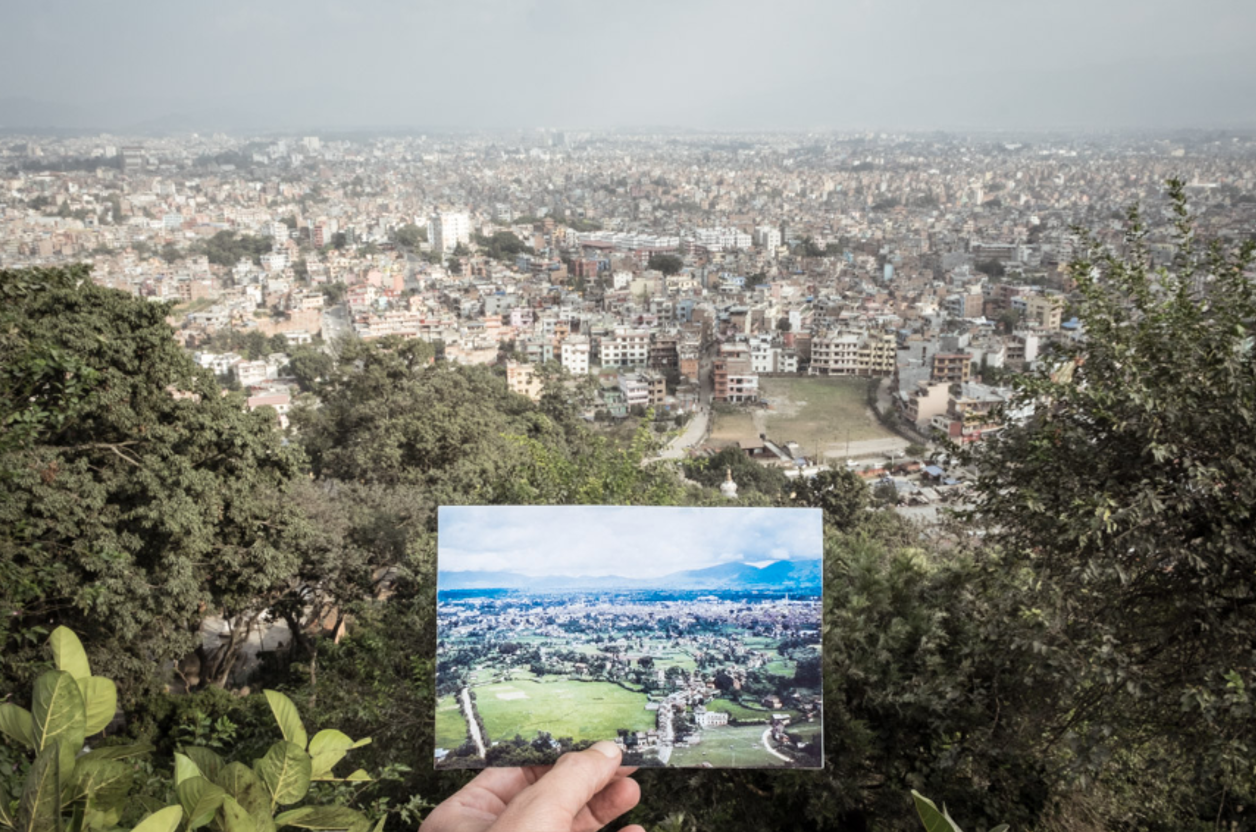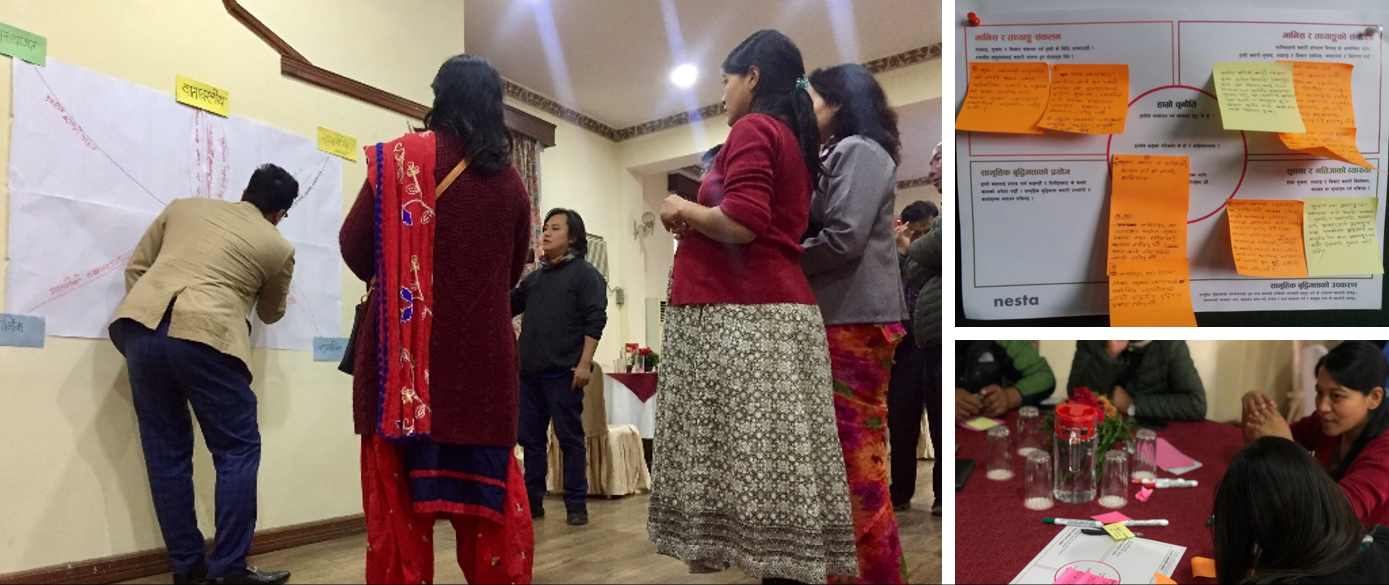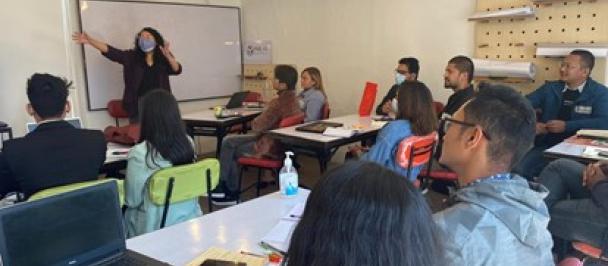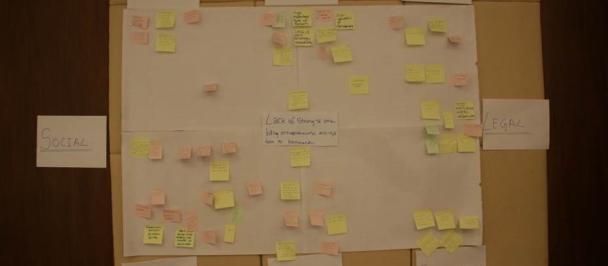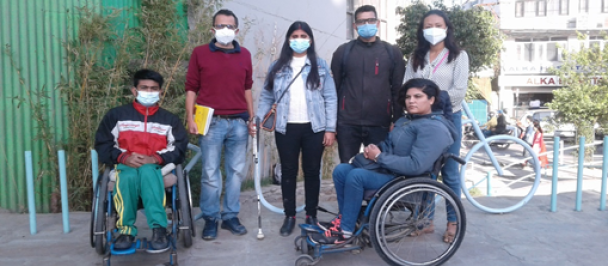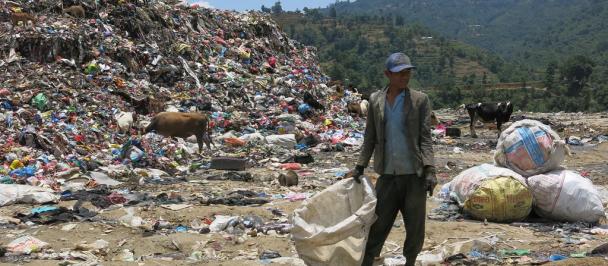An aerial view of Kathmandu from Swoyambhu temple, compared with the exact same view on an archive photo from 1967. Photo courtesy: PC Nepal Photo Project / Nepal Picture Library-Marcopanzetti.com, 2018.
By Aliska Bajracharya
“We are Accelerators and we are here to do things quickly!” This was the mantra UNDP’s Accelerator Lab team chanted as we embarked on this amazing journey. The Lab comprises of three members, me Head of Solutions Mapping, Exploration Analyst and Experimentation Analyst. As the Solutions Mapper, I kept an eye-out for possible local solutions that could address two frontier challenges of youth unemployment and unplanned urbanization. In Nepal, unplanned urbanization is a root cause of complex issues like solid waste mismanagement, rise in air-pollution, lack of open public spaces and more. We took stock of what is already in place to tackle some of these complex issues. The findings were interesting!
The ground reality
What is the first thing that comes to your mind when you hear the word “park”? Some of you may have just looked out your window and found one right outside. Some of you may have recalled play time with friends. But for a resident of Kathmandu valley “parks” are a luxury, simply because they are so uncommon. If you are in Kathmandu, you will notice that the city is densely populated and at every turn you will find either a market place, buildings, temples or neglected barren open spaces used for dumping waste.
Thus, for our first intervention as the Lab, we chose tactical urbanization with the mission to convert neglected open spaces into green pocket parks. The idea behind the pocket park concept is to create breathing spaces, refuge for the community when natural disaster strike and increase the green cover of Kathmandu Valley while incorporating innovative tools and techniques to make these parks environmentally sustainable.
Mission possible
There is a clear budget allocation from the government and there is a clear requirement for the people then why is there a disconnect between the two? Unanswered questions like this convinced us to take up this issue and think-through possible solutions. Here are three things that we uncovered:
1) What is happening under the radar?
During one of these sites visits we came across a group of volunteers named “Vriksha” (‘vriksha’ means ‘tree’ in Nepali) who in just eight months have led various community level initiatives to make this city more habitable and greener by cleaning these open spaces. Their vision is to respect change while not letting it imprison basic human requirements.
2) How can we help?
Grassroots solutions cannot scale if the government imposes regulatory restrictions on them and government intervention cannot flourish if people don’t accept them. Thus, they must meet half-way! That’s where AccLab Nepal comes in. During our first Collective Intelligence exercise, community members, government officials, private sectors and architects came together to discuss the sustainability quotient of these parks in terms of usage, maintenance and accessibility. Mr. Prabin Shrestha from Lalitpur Metropolitan City office said, “The collective intelligence exercise has helped shed light into the individual grievances that people face, I am motivated by their level of dedication and enthusiasm to support the government in making the vision of pocket parks a reality. Ms. Laxmi Pandey, housewife, said, “This is the first time I am speaking with a government official and I feel empowered to be able to voice the concerns of my fellow community members on an issue that is dear to our hearts.”
Sense making and collective intelligence session hosted by the Accelerator Lab for government officials and local community for pocket park project. Photo courtesy: Accelerator Lab Nepal
3) What is the scale up scope?
Lalitpur, a small district of 53 square kilometres in Kathmandu Valley has more than 30 barren and neglected public spaces. Local government and the community need to work together to make pocket parks a reality, not an easy task but if the activities of past 2 months are any testament for the future- we are optimistic about its success and scale-up in other provinces of the country. Ultimately, the lab also aims to incorporate local innovations while designing these parks such as concrete walkways made from re-cycled plastics and outdoor seating furniture made from discarded tyres. We are also tapping into the existing expertise of UNDP’s Environment team to monitor overall control of the CO2 emission and carbon sequestration through plantation and more.
Way forward
When I was a kid my dad used to take me to a play area a few minutes from my home. It was a small open space with a big tree, a common hang-out space of kids and adults alike, today that open space is functioning as a dumping site for construction materials. Only 15 years ago, this city was a different place, the sense of community was stronger and not to mention it was a lot cleaner, greener and more beautiful. But now, the city has lost its charm, we often contemplate as to why things have changed so drastically, but the reality is we cannot stop change and a big part of change in context of economic development is bigger buildings, narrower roads and heavier traffic.
For the Accelerator Lab in Nepal, we are exploring and mapping local level solutions that holds the potential to solve problems that are defining our generation. With our portfolio of experiments approach we aim to continue working closely with the change-makers from local communities who are focused on inclusive development above everything else. As the first experiment of the Lab, we are working with Vriksha, Lalitpur Metropolitan City and the local community to turn one previously neglected open space into a pocket park by December end of 2019. Starting January of 2020, we are eyeing seven more and at this point in time, this is exactly what this city needs. No, I am not talking about the pocket parks, I am talking about a proactive government and community to endorse an “accelerated approach” to creating impact.
Site visit to open spaces in Lalitpur. These open spaces are currently used as unauthorized parking lots and dumping sites. Photo courtesy: Acclerator Lab Nepal

 Locations
Locations
